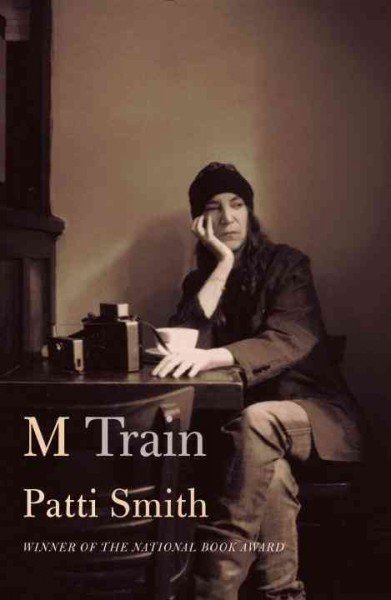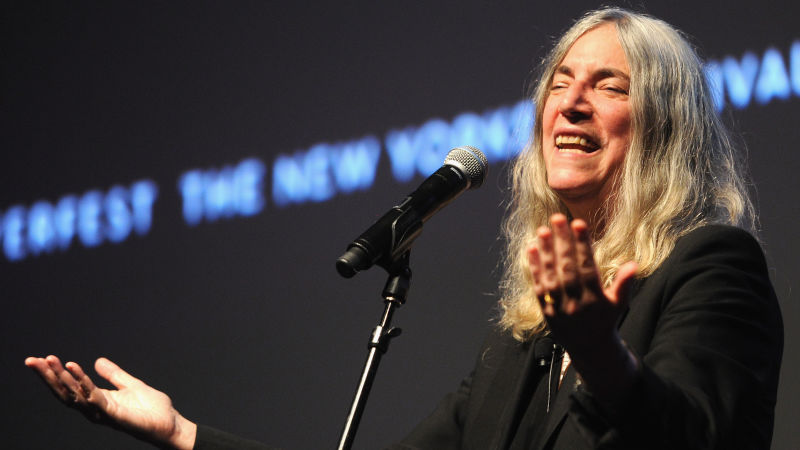“I wrote whatever came to mind,” she says. “It had no outline. I just wanted to keep writing and writing and writing. No editing, and just go on and on and on.”
What might sound like an editor’s nightmare was a dream come true to Kevin Bourke, who copy edited M Train.
“Patti Smith’s been important to me since her first albums,” he said. “Even the liner notes just introduced me to so much I hadn’t experienced before, like [Jean] Genet or [Arthur] Rimbaud.”
For Bourke, one of the pleasures of copyediting M Train was learning about more of Smith’s enthusiasms. Which, on any given page, might include German romanticists, the Japanese author Ryūnosuke Akutagawa, detective shows or Pat Sajak. Still, Bourke admits to initial intimidation when it came to fact-checking Patti Smith.
“That’s a voice I’ve been hearing for 40 years,” he says. “In the beginning, it was a little bit difficult because I was … staring at her and not paying attention to what she was saying. But she changes the atmosphere of a room when she comes in. She’s got a really sweet energy about her, so I was nervous — until she showed up.”
Smith said one of her goals with this memoir was to write about her late husband, Fred “Sonic” Smith, who played guitar in the influential early punk band MC5. He died in 1994 of heart failure. Patti Smith followed him to Detroit soon after meeting him in 1976. Then, she more or less dropped out of the music scene for years. In M Train, she writes about mending Fred Smith’s clothes and adopting his interests — such as the Detroit Tigers, and boating. It seems far removed from the subversive spirit she conveyed as a musician.
“Well, I do have that sense of giving the male his due,” Smith says mildly. “You look at the lioness. She is really — I was really the one that held the reins in the household. But he was our king, you know? That’s like lions. The king sits there being king; he has this beautiful mane and watches over everybody. But it’s the mother, the lioness, who goes out and finds the food and drags it back and gives it to the kids. He was our king.”
It’s Patti Smith’s loves and what she thinks about that fills M Train‘s pages. An entire chapter is devoted to the TV show The Killing. She adored it so much, she sent a fan letter to the show’s producer and ended up on the Vancouver set for a cameo.
“The role I was born to play: a neurosurgeon, of course,” she says, happily.
Smith thinks detective work is much like being a poet. It’s a vocation that’s observant and relentless. She was, in her words, “heartbroken” when The Killing was canceled. She writes movingly about growing old without the treasured company of several people she’s loved most, in a world that can feel often frightening and terrible. But Patti Smith is a romantic, and an optimist.
“For everything bad, there’s a million really exciting things,” she says, “whether it’s someone puts out a really great book, there’s a new movie, there’s a new detective, the sky is unbelievably golden or you have the best cup of coffee you ever had in your life.”
A million things. And many of them are in Patti Smith’s new book.
Copyright 2015 NPR. To see more, visit http://www.npr.org/.
9(MDAxOTAwOTE4MDEyMTkxMDAzNjczZDljZA004))



